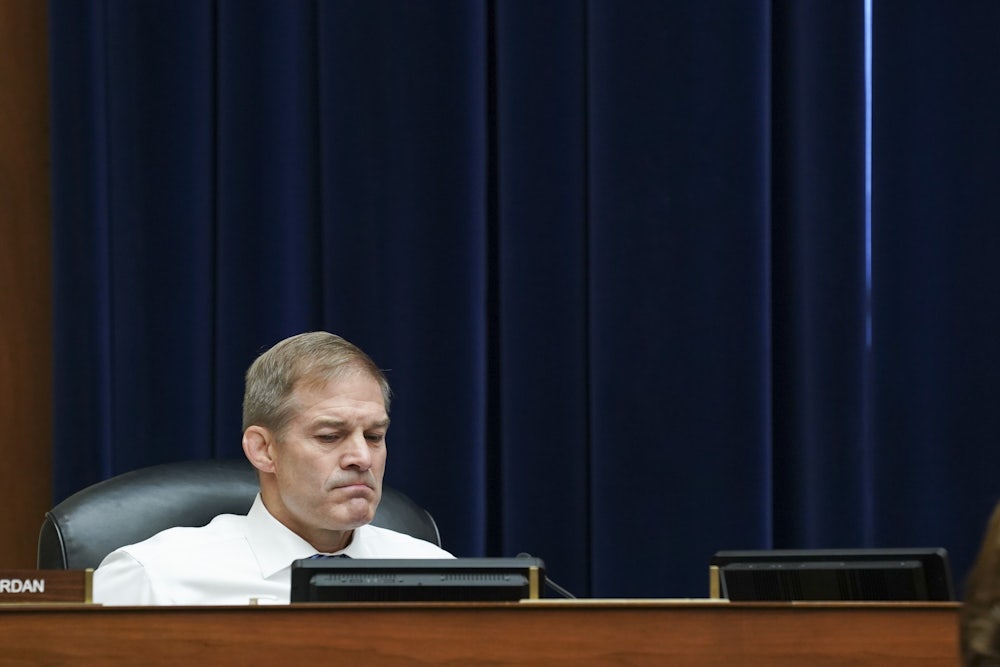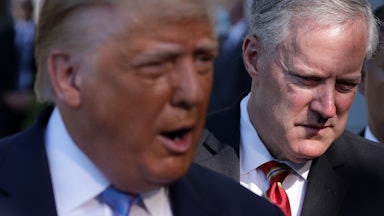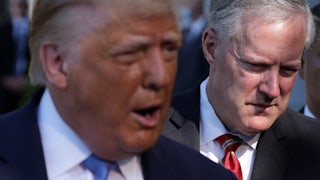When Congressman Jim Jordan aggressively declined the Select Committee to Investigate the January 6th Attack on the Capitol’s request to cooperate with the panel’s investigation, he set up a situation in which the committee may end up subpoenaing him and other sitting members of Congress. That’s dramatic enough. But his rejection is important for a different reason. It marks yet another milestone in the decline of bipartisan respect for Congress exercising its investigatory and oversight powers.
“There’s a hollowing out of oversight power from the committees that’s been occurring over the last 10 years, even longer. But it’s been exacerbated [by] people ignoring their long, traditional power to obtain information,” said Keith Ashdown, a former chief investigator for the Senate Homeland Security and Government Affairs Committee. “Remember, [a] chairman’s letter technically has the power of a subpoena, from Judiciary Committee, from Energy and Commerce, from HSGAC, from Intel committees—their power to obtain information to educate the lawmakers to legislate has been irrevocably harmed, and it’s going to take a long time to get it back to where it was. I would put Jim Jordan’s actions at the tip of the spear in doing that.”
Multiple veterans of congressional investigations said Jordan is adding to a precedent where even the most serious congressional inquiries are dismissed as partisan. “I think the long-term ramifications are that it makes it hard for these kind of commissions to ultimately get at the truth,” said Jonathan Bydlak, the policy director for the governance program at the right-leaning R Street Institute think tank. “You basically get an environment where the commission is seen as more partisan because of the fact that that’s what one side is asserting.”
From Kevin McCarthy on down, the GOP has been hostile throughout the January 6 committee’s inquiry. Jordan himself has bashed the panel as just a partisan abuse of congressional power. In his letter telling the committee to go stuff it, he called the probe a “partisan witch-hunt” and a “Democrat obsession.” He’s clashed with the Republicans on the committee, including in a heated exchange with Vice Chair Liz Cheney during the riot, when he suggested that the men trapped on the House floor during the riot “get the ladies away from the aisle.” That ticked Cheney off. Her anger over how Trump supporters like Jordan egged on the crowd boiled over.
All of this is par for the course for Jordan. In his current role as the top Republican on the Judiciary Committee and a previous stint on the Oversight Committee, he’s engaged in the kind of behavior that, if the Democrats were to copy it, those panels would inevitably examine if he were running them. After the November 2020 election, for instance, Jordan, alongside Congressman Scott Perry (who has also rejected a similar request by the committee) and senior Donald Trump aides plotted out how to call into question the legitimacy of the election. In the following months, Jordan would ignore the ironclad evidence contradicting unfounded rumors of widespread election fraud and argued that Trump should not concede the election. “We should still try to figure out exactly what took place here,” Jordan said, in early December 2020.
In January 2021, a day before the mob attack, Jordan forwarded a text message to Trump White House chief of staff Mark Meadows laying out how then–Vice President Mike Pence could block certification of the election.
Although new facts about the events of January 6 are still emerging, it’s clear that Jordan has valuable information that might further help the committee. But Jordan has maintained that he has “nothing to hide” from the committee.
His refusal is in part what’s pushing the committee to have to consider subpoenaing members of Congress, something that isn’t unheard of but is far from common. Congressional committees subpoenaing members of Congress go as far back as 1923, according to the Office of the Historian for the House of Representatives.
Beyond all that, there’s the question of Jordan’s hypocrisy. Jordan is a former ranking member of the House Oversight Committee and currently the ranking Republican on the House Judiciary Committee—two committee that have broad oversight powers that both parties have used. And if the Republicans retake control of the House of Representatives in the midterms, Jordan and his GOP allies are certain to initiate investigations and try to compel witnesses in the same way the January 6 committee has.
And if he assumes leadership of Judiciary, Jordan will of course be running the committee where impeachment proceedings begin. Most observers think the GOP will find some flimsy rationale to initiate an impeachment of Biden. What will he say if administration officials don’t obey his subpoenas?
Bydlak argued there’s little reason to expect Jordan or any other of the growing number of lawmakers the committee wants to come and participate in the investigation to follow their own example when in an investigatory position during Republican control of Congress.
“I think the most likely outcome is that Jim Jordan and Republicans come into office and they do these exact same things, and it doesn’t create an issue for them because there’s really no problem with a kind of hypocrisy,” Bydlak said. “So for someone like Jordan, the goal is no longer to ultimately get at the truth, especially if it’s on your own side, it’s really to deflect from any good-faith effort to get at the truth. And it is to just do those things that will further endear you to the base that you need to get reelected.”
Jordan’s resistance—and that of Perry and other pro-Trump sycophants—may or may not reflect their true belief of what happened on January 6. The committee uncovered that Sean Hannity and other stalwart Trumpian media figures actually privately tried to get the president himself to do something to quell the mob attack. It’s not clear if Jordan feels that way, too, which might incur Trump’s wrath. But what Jordan’s refusal to cooperate with the committee has done is help fuel growing skepticism of the impartiality of congressional inquiries in general. Jordan will wish that skepticism didn’t exist when he himself is leading a future congressional investigation.










